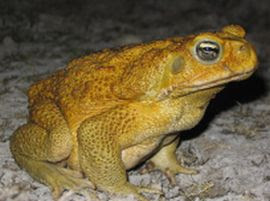So many things to take care about lately! During this time of the year, it becomes quite difficult to enjoy some time off to do whatever things I like to do in life - writing my blog being one of them. Still, I can't miss the opportunity to comment about interesting things (good and bad) that occur all around the world. It is even more enjoyable when the things to comment about are very positive. But when it comes to be about environment and sustainability, the positions are disputed. That's what makes the topic more appealing to discuss.
Yes, it's true, our behaviour as residents of this planet has been pretty bad overall, especially in recent times. Mankind has exaggeratedly exploited the natural resources available o

n Earth, to turn them into objects and products that make life possible as we know it today; however, the cost of such transformation has been high: A good example is the recent
extinction of the Baiji, caused by the systematic destruction of its habitat and life cycle.
I don't know how many people are actually concerned about the tragic end of the Baiji species, possibly not many. At least, there are some nations that aren't touched at all, moreover, they still promote and defend activities such as
whale hunting, although whales are endangered animals.
If the extinction of species doesn't help people and nations to be more conscious about nature and environment, what will? Maybe we've found the answer to this question in recent years, and it's called
global warming. Whether such phenomenon is a result of the human destruction of nature is still disputed, but just in case, some
governments have started taking some (late) corrective actions. Now it's up to civilians to make their effort as well.

The panorama I describe here sounds catastrophic. Fortunately, not all of the news regarding environmental issues are as lousy as I write. There are some good signs that let us think that it is possible to develop our civilizations and ways of living while allowing nature to flourish as well. One of the examples of this is the recent discovery of new species of plants and animals in the Indonesian island of
Borneo. Most of them were discovered a few months ago; this week, a new type of Leopard (discovered in 2006) has been officially called
Bornean Clouded Leopard (
Neofelis nebulosa). This predator is said to have been discovered since the 19th Century, thus, this recent naming is only an attempt by the World Wide Fund of Nature (WWF) to create the conditions to protect it.
What drove the WWF to assign it a name is the conclusion of an investigation that determined that this species isn't directly related to other leopard species in mainland Asia. But it is indeed a good news, as long as this announcement doesn't become a springboard to launch a campaign of Bornean clouded leopard hunting to sell its fur and take economic advantage of it. Let's hope this is not the case, and let's hope the authorities protect this species properly.
What other surprises are hidden in Borneo? The more scientists investigate, is the more interesting they find it there!
 talks about people freaked out in a village called Bogolyubovo, in Russia. They are systematically refusing to obtain a new series of passports issued by the government because they consider them sinful. And the reason to consider them sinful is that those passports have bar codes (which, by the way, is not the one that appears on the picture), each of which, supposedly, contains the number 666 somewhere on it.
talks about people freaked out in a village called Bogolyubovo, in Russia. They are systematically refusing to obtain a new series of passports issued by the government because they consider them sinful. And the reason to consider them sinful is that those passports have bar codes (which, by the way, is not the one that appears on the picture), each of which, supposedly, contains the number 666 somewhere on it.



















